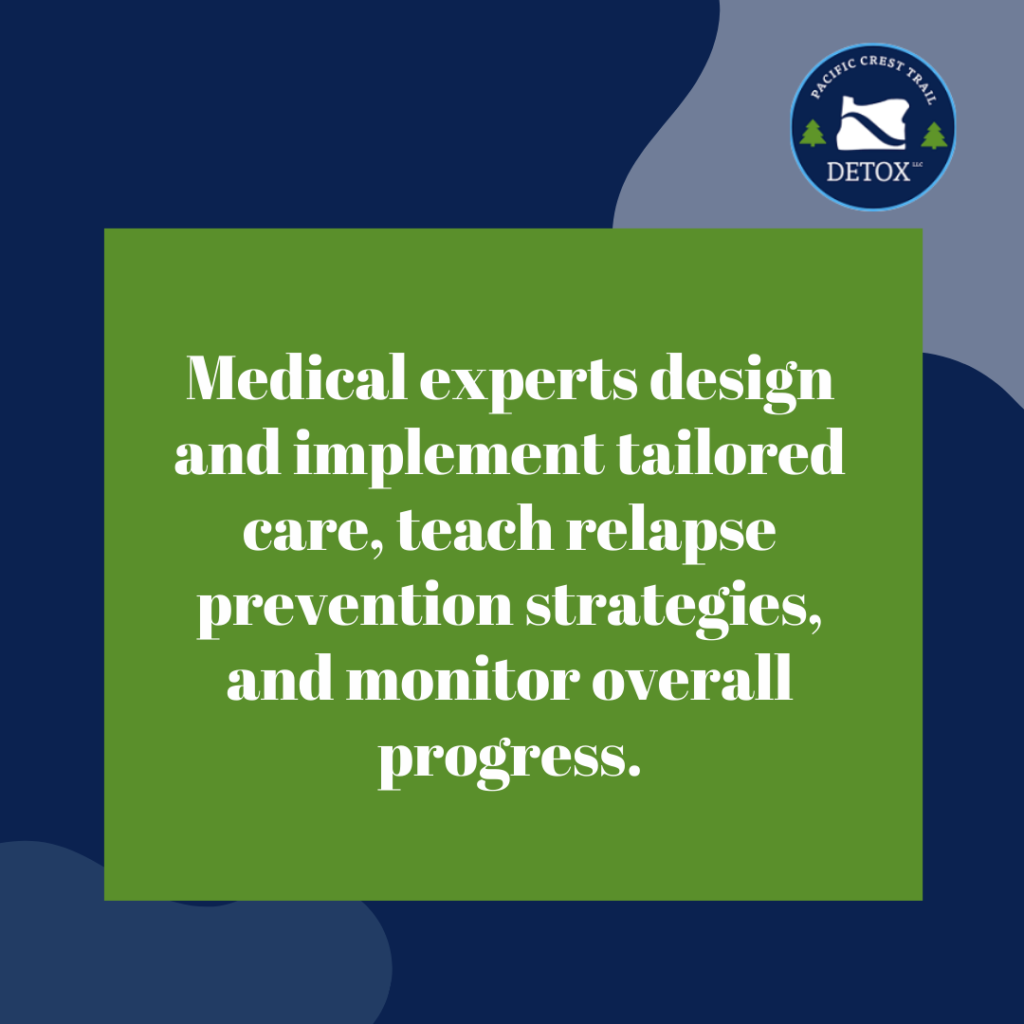People say that every journey starts with a small step. But in addiction recovery, acknowledging the need for — and undergoing — detoxification or detox is a step that’s already monumental. However, this essential process is rife with challenges. If someone wants to quit their addiction, they will likely experience substance withdrawal symptoms.
This is where you can come in. While the journey can be overwhelming, having a proper support system can make a world of difference. In this blog, we will delve into the complexities of this phase and provide you with practical guidance.

What is Medical Detox and Its Process
About 68%. This is the rehab success rate of people who have undergone detoxification before receiving treatment. But what is detox? According to the Addiction Center, it is the “process of clearing the body of drugs or alcohol that an individual has consumed.”
While everyone’s needs differ, the detox process itself starts with a comprehensive evaluation. This is when a healthcare team assesses a patient’s physical and mental health. The information they’ll get forms the foundation for a tailored long-term treatment plan.
Next is stabilization, which involves medical and psychological therapy to prevent harm. Doctors may also prescribe addiction treatment medications to reduce withdrawal symptoms. Then, the final step prepares individuals for entry into a treatment program. At this point, doctors offer insights into the treatment process and expectations.
Tips to Support Someone in Detox

If you have a loved one embarking on a detoxification journey, your help can go a long way. Here are tips on how you can support them without it taking a toll on your health.
Show Understanding and Empathy
Detox may be a physical process, but its effect on one’s mental well-being cannot be understated. Someone you know who’s undergoing detoxification will exhibit all sorts of emotions. They may feel frustrated or anxious. They may harbor fears about the future and worry that they won’t be able to be sober.
In times like this, one of the primary things they need is reassurance. Hence, you must show that you understand them and that you’re there for them. Be careful not to make them feel that they are judged and that they are to blame for their situation.
Educating Yourself on Their Substance of Use
Having profound empathy is a good place to start. However, you must translate your intent into effective action. It starts with having a fundamental understanding of substance addiction itself. You must learn its signs, risks, potential treatment options, and the phases they entail. Additionally, you must recognize and have an idea of how to manage detox symptoms.
So, find time to educate yourself, especially about the specific addictions of your loved one. Fortunately, reputable sources of materials are accessible online. These include:
- National Institute on Drug Abuse (NIDA)
- National Institute on Alcohol Abuse and Alcoholism (NIAAA)
- Substance Abuse & Mental Health Service Administration (SAMHSA)
- Center for Substance Abuse Treatment (CSAT)
Avoiding Triggers and Creating a Safe Environment
For people battling addiction, triggers can be anywhere — even within themselves. So, one of the major things you can do is to help create a safe environment for detox. To do this, you must know your loved ones’ specific triggers.
Then, work together to reduce exposure to those and empower them to healthily cope. At your home, be sure to get rid of addictive substances. Encourage them to pursue meaningful hobbies and help make these things more accessible to them. Ultimately, the goal is to ensure a space where they can find that much-needed sense of security and belongingness.
Communicate Openly and Honestly
An integral part of a safe detox and recovery environment is open communication. In any storm that people weather, it pays to have someone who they can talk to and lean on. In your communication, maintain a positive tone and practice active listening. This will help them express their thoughts and feelings, even the ones that are deeply rooted.
It also doesn’t just have to be about the negatives. More importantly, include triumphs, big and small, in your conversations. Doing this further builds trust and deepens the bond you share.

Avoid Enabling and Set Boundaries
You need to support your loved one and help them create better habits, instead of allowing them to go back to their old ways. To show you care, don’t tolerate behaviors that disrupt their detoxification journey.
However, you must also set boundaries. Don’t neglect yourself when helping your loved one out. By establishing clear expectations, you also foster independence.
Encouraging Professional Assistance
Keep in mind that you can’t do it all yourself: You can’t lead your loved one to sobriety on your own. This is why detox and the whole recovery process are reliant on professional help. With utmost tact, encourage your loved one to reach out to healthcare professionals.
Medical experts design and implement tailored care, teach relapse prevention strategies, and monitor overall progress. Moreover, they have the tools, experience, and network needed to address any complications.
Practicing Self-Care
Remember: You mustn’t only focus on the loved one you’re taking care of. You must also take care of yourself because supporting one’s detox journey is physically, emotionally, and mentally exhausting.
As part of practicing self-care, don’t forget to eat nutritious meals and exercise regularly. Find some creative or purposeful outlets to destress. This is to prevent yourself from falling into the trappings of addiction. You must also seek support from other family members and your closest friends. When needed, consult professionals. They can impart ways to support your loved one without compromising your wellness.
Celebrate Milestones and Progress
The path toward healing and sobriety is never a smooth one. Although there are challenges, you should also acknowledge and celebrate achievements. To give your loved one the motivation they need, acknowledge their progress and milestones, even if you think they’re small or trivial.

In Conclusion
Detox requires resilience in all aspects. It’s only true for people fighting addiction but also for those in their support system. If you know someone who is detoxifying, offer a helping hand and have an empathetic heart.
To better understand their situation, educate yourself and identify their specific triggers. While they undergo detoxification, engage in honest conversations. Encourage them to enlist professional help for more structured guidance. While you do all this, don’t let your well-being take a backseat.
Want to learn more about detox so you can provide informed support? Pacific Crest Trail Detox offers invaluable resources for people like you. They also offer some of the best detox programs in Oregon. Reach out today!
